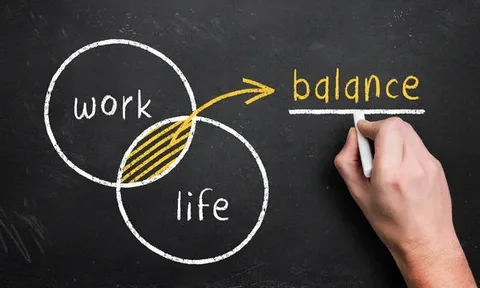Introduction
Maintaining work-life balance is essential for long-term professional success and personal well-being. This guide builds on our article about career transitions and provides strategies for achieving sustainable balance in your professional and personal life.
Understanding Work-Life Balance
Define what balance means for you. This foundation is crucial for career advancement. Consider your priorities, values, and personal definition of success.
Setting Boundaries
Establish clear work-life boundaries. This approach supports your long-term career growth. Learn to say no, manage expectations, and protect your personal time.
Time Management
Develop effective time management strategies. This practice aligns with leadership development. Prioritize tasks, delegate when possible, and create efficient work routines.
Stress Management
Implement stress reduction techniques. This strategy is essential for managing workplace stress. Practice mindfulness, exercise regularly, and maintain healthy habits.
Personal Development
Invest in your personal growth and well-being. This focus is crucial for continuous learning. Pursue hobbies, maintain social connections, and prioritize self-care.
Conclusion
Achieving work-life balance requires intentional effort and ongoing attention. By understanding your personal definition of balance, setting clear boundaries, managing your time effectively, implementing stress reduction techniques, and investing in personal development, you can create a sustainable approach to professional success and personal well-being.
Frequently Asked Questions
Q: How can I maintain work-life balance in a demanding job?
A: Start by setting clear boundaries between work and personal time. Communicate your availability to colleagues and supervisors. Prioritize tasks and focus on what’s most important. Take regular breaks throughout the day. Use your vacation time and disconnect from work during off-hours. Delegate tasks when possible. Remember that maintaining balance is an ongoing process that requires regular attention and adjustment.
Q: What are some effective stress management techniques for busy professionals?
A: Practice mindfulness and meditation regularly. Maintain a consistent exercise routine. Get adequate sleep and maintain a healthy diet. Take short breaks throughout the workday. Develop a support network of colleagues and friends. Learn to recognize early signs of stress and address them proactively. Consider professional help if stress becomes overwhelming. Remember that small, consistent practices can have a significant impact on stress levels.
Q: How can I improve my time management to achieve better work-life balance?
A: Start by identifying your most productive times of day. Create a daily schedule that includes both work and personal activities. Use time management tools and techniques like the Pomodoro method. Prioritize tasks based on importance and urgency. Learn to say no to less important commitments. Batch similar tasks together to improve efficiency. Regularly review and adjust your schedule to maintain balance. Remember that effective time management is about working smarter, not harder.

